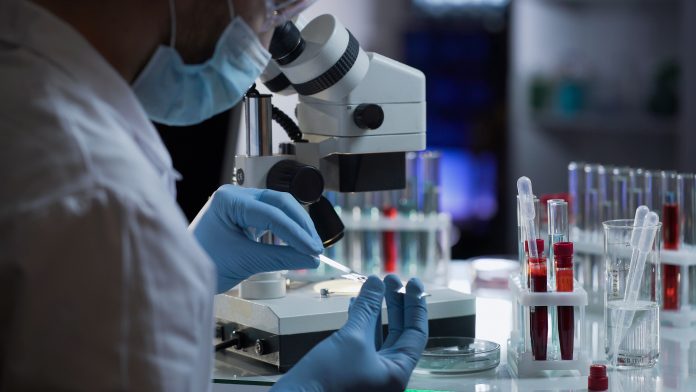Scientists are explaining that antibody production doesn’t stop, it simply plateaus – in some people, COVID antibodies exist “11 months after first symptoms”
In the body, a viral infection creates a storm of reactions. Over the last year, the world has been catching fragments and pieces of how this actually works. Now scientists are trying to understand how a mild infection of COVID could set-up a survivor to handle a more severe form of the virus.
What happens when a virus hits the immune system?
Antibody-producing immune cells rapidly multiply and circulate in the bloodstream, driving antibody levels incredibly high. Once the infection has been handled, most of these cells die off – no longer urgently needed. This means that blood antibody levels significantly drop. But long-lived plasma cells simply move to the bone marrow and stay there. From there, these cells continue to create low levels of antibodies into the bloodstream to protect against another encounter with the same virus.
Now, a team of researchers have initial results on low levels of immune cells found in the bone morrow – up to 11 months after the initial COVID infection. A team at the Washington University School of Medicine in St. Louis believe that such cells could persist for a lifetime.
‘A misinterpretation of the data’
“Last fall, there were reports that antibodies wane quickly after infection with the virus that causes COVID-19, and mainstream media interpreted that to mean that immunity was not long-lived,” commented senior author Ali Ellebedy, PhD, an associate professor of pathology & immunology, of medicine and of molecular microbiology.
“But that’s a misinterpretation of the data. It’s normal for antibody levels to go down after acute infection, but they don’t go down to zero; they plateau. Here, we found antibody-producing cells in people 11 months after first symptoms. These cells will live and produce antibodies for the rest of people’s lives. That’s strong evidence for long-lasting immunity.”
Does this mean infected people don’t need the vaccine?
No. They still need the vaccine.
This is because the low-level of antibodies present in the blood are not enough to handle a second attack if the person had severe COVID, especially since the current dominant mutations are even more transmissible. The UK variant has been proven to be more infectious, as have the South African and Brazilian variants. Now, the world watches to see how infectious the Indian mutation is as it migrates to other countries.
Though the researchers found that some antibodies still existed in the bone marrow of COVID survivors, they only found this result through a very, very small sample size. They looked at 19 bone marrow samples.
Four months later, 11 months later, still here
They found that 15 of the 19 bone marrow samples from people who had had COVID-19 contained antibody-producing cells specifically targeting the virus that causes COVID-19. Such cells could still be found four months later in the five people who came back to provide a second bone-marrow sample.
None of the 11 people who had never had COVID-19 had such antibody-producing cells in their bone marrow.
Could the antibodies sitting in the marrow be enough?
There’s not currently enough data to understand if a second, mild infection could be fought with bone marrow cells only.
First author Jackson Turner, PhD, an instructor in pathology & immunology, said: “Inflammation plays a major role in severe COVID-19, and too much inflammation can lead to defective immune responses. But on the other hand, the reason why people get really sick is often because they have a lot of virus in their bodies, and having a lot of virus around can lead to a good immune response. So it’s not clear.
“We need to replicate the study in people with moderate to severe infections to understand whether they are likely to be protected from reinfection.”











